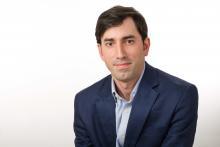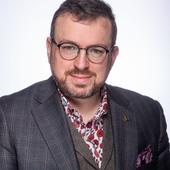If you could ‘design’ your own child, would you?
Scientists in Portland, Ore., just succeeded in creating the first genetically modified human embryo in the United States, according to Technology Review. A team led by Shoukhrat Mitalipov of Oregon Health & Science University is reported to “have broken new ground both in the number of embryos experimented upon and by demonstrating that it is possible to safely and efficiently correct defective genes that cause inherited diseases.”
The U.S. team’s results follow two trials — one last year and one in April — by researchers in China who injected genetically modified cells into cancer patients. The research teams used CRISPR, a new gene-editing system derived from bacteria that enables scientists to edit the DNA of living organisms.
The era of human gene editing has begun.
In the short term, scientists are planning clinical trials to use CRISPR to edit human genes linked to cystic fibrosis and other fatal hereditary conditions. But supporters of synthetic biology talk up huge potential long-term benefits. We could, they claim, potentially edit genes and build new ones to eradicate all hereditary diseases. With genetic alterations, we might be able to withstand anthrax attacks or epidemics of pneumonic plague. We might revive extinct species such as the woolly mammoth. We might design plants that are far more nutritious, hardy and delicious than what we have now.
But developments in gene editing are also highlighting a desperate need for ethical and legal guidelines to regulate in vitro genetic editing — and raising concerns about a future in which the well-off could pay for CRISPR to perfect their offspring. We will soon be faced with very difficult decisions about when and how to use this breakthrough medical technology. For example, if your unborn child were going to have a debilitating disease that you could fix by taking a pill to edit their genome, would you take the pill? How about adding some bonus intelligence? Greater height or strength? Where would you draw the line?
CRISPR’s potential for misuse by changing inherited human traits has prompted some genetic researchers to call for a global moratorium on using the technique to modify human embryos. Such use is a criminal offense in 29 countries, and the United States bans the use of federal funds to modify embryos.
Still, CRISPR’s seductiveness is beginning to overtake the calls for caution.
In February, an advisory body from the National Academy of Sciences announced the academy’s support for using CRISPR to edit the genes of embryos to remove DNA sequences that doctors say cause serious heritable diseases. The recommendation came with significant caveats and suggested limiting the use of CRISPR to specific embryonic problems. That said, the recommendation is clearly an endorsement of CRISPR as a research tool that is likely to become a clinical treatment — a step from which there will be no turning back.
CRISPR’s combination of usability, low cost and power is both tantalizing and frightening, with the potential to someday enable anyone to edit a living creature on the cheap in their basements. So, although scientists might use CRISPR to eradicate malaria by making the mosquitoes that carry it infertile, bioterrorists could use it to create horrific pathogens that could kill tens of millions of people.
With the source code of life now so easy to hack, and biologists and the medical world ready to embrace its possibilities, how do we ensure the responsible use of CRISPR?
There’s a line that “A Prairie Home Companion” host Garrison Keillor uses when describing the fictional town of Lake Wobegon, where “all the children are above average.” Will we enter a time when those who can afford a better genome will live far longer, healthier lives than those who cannot? Should the U.S. government subsidize genetic improvements to ensure a level playing field when the rich have access to the best genetics that money can buy and the rest of society does not? And what if CRISPR introduces traits into the human germ line with unforeseen consequences — perhaps higher rates of cardiac arrest or schizophrenia?
Barriers to mass use of CRISPR are already falling. Dog breeders looking to improve breeds suffering from debilitating maladies are actively pursuing gene hacking. A former NASA fellow in synthetic biology now sells functional bacterial engineering CRISPR kits for $150 from his online store. It’s not hard to imagine a future in which the big drugstore chains carry CRISPR kits for home testing and genetic engineering.
The release of genetically modified organisms into the wild in the past few years has raised considerable ethical and scientific questions. The potential consequences of releasing genetically crippled mosquitoes in the southern United States to reduce transmission of tropical viruses, for instance, drew a firestorm of concern over the effects on humans and the environment.
So, while the prospect of altering the genes of people — modern-day eugenics — has caused a schism in the science community, research with precisely that aim is happening all over the world.
We have arrived at a Rubicon. Humans are on the verge of finally being able to modify their own evolution. The question is whether they can use this newfound superpower in a responsible way that will benefit the planet and its people. And a decision so momentous cannot be left to the doctors, the experts or the bureaucrats.
Failing to figure out how to ensure that everyone will benefit from this breakthrough risks the creation of a genetic underclass who must struggle to compete with the genetically modified offspring of the rich. And failing to monitor and contain how we use it may spell global catastrophe. It’s up to us collectively to get this right.
The post If you could ‘design’ your own child, would you? appeared first on Vivek Wadhwa.
To subscribe to Facts and Arts' weekly newsletter, please click here.
To follow Facts & Arts' Editor, Olli Raade, on Twitter, please click here.
If you have something to say that you want to say on Facts & Arts, please
Write to the Editor, or write a comment in the comments section.

















